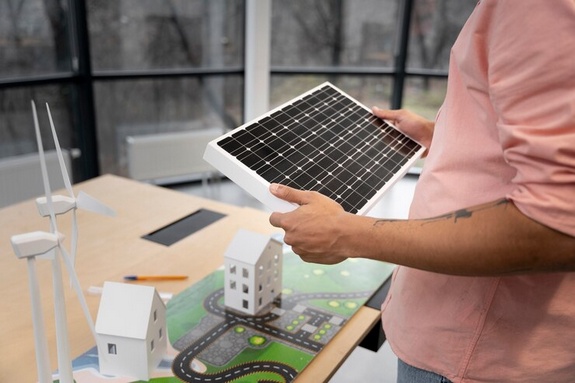Introduction
As the world intensifies its commitment to renewable energy, solar inverters have become integral components in harnessing solar power. However, with the growing adoption of solar energy systems, the responsible disposal and recycling of end-of-life solar inverters have emerged as critical aspects of the renewable energy lifecycle. This article explores the realm of solar inverter recycling, examining the environmental challenges, technological innovations, and the broader implications for sustainable energy practices.
Environmental Challenges in Solar Inverter Disposal
While solar inverters play a crucial role in converting direct current (DC) from solar panels into alternating current (AC) for use in homes and industries, their disposal poses environmental challenges. Solar inverters often contain electronic components and materials, including semiconductors and circuit boards, which can be hazardous if not properly managed.
Traditional methods of disposal, such as landfilling, may result in the release of toxic substances into the environment, contributing to electronic waste-related environmental issues. Efficient recycling practices are essential to mitigate these environmental challenges, ensuring the recovery of valuable materials and preventing the release of hazardous components into the ecosystem.
Technological Innovations in Solar Inverter Recycling
Advancements in technology play a pivotal role in addressing the environmental challenges associated with solar inverter disposal. Automated dismantling systems, equipped with robotics and artificial intelligence, are emerging as innovative solutions for efficient inverter recycling. These systems can identify and separate different materials within inverters, facilitating the recycling process and maximizing the recovery of valuable components.
Furthermore, research in material science focuses on developing eco-friendly materials for solar inverters. This includes the exploration of recyclable and biodegradable components, reducing the environmental impact of inverter manufacturing and disposal. The integration of sustainable materials in inverter production aligns with the broader goal of fostering a circular economy in the renewable energy sector.
Economic Considerations in Inverter Recycling
The economic dynamics of solar inverter recycling present challenges and opportunities. The initial cost associated with recycling processes can be significant, requiring investments in advanced technologies and infrastructure. However, the recovery of valuable materials from recycled inverters introduces economic opportunities.
Materials such as copper, aluminum, and electronic components can be reclaimed and reused in the manufacturing of new electronic devices. This not only reduces the demand for virgin resources but also contributes to the economic viability of inverter recycling. Collaborative efforts between governments and industries are essential to create an environment conducive to the growth of the solar inverter recycling sector, with policies incentivizing responsible disposal and recycling practices.
Local and Global Impacts of Inverter Recycling
The impacts of solar inverter recycling extend beyond local communities, influencing global sustainability efforts. At the local level, communities may experience benefits such as job creation in the recycling industry and a reduction in environmental hazards associated with improper inverter disposal. Additionally, embracing sustainable recycling practices for solar inverters contributes to a more circular economy, aligning with global initiatives to reduce electronic waste and promote responsible resource management.
On a global scale, the proliferation of sustainable recycling practices for solar inverters is crucial for achieving international environmental goals. By minimizing the environmental impact of inverter disposal and promoting the reuse of materials, countries can collectively work towards a more sustainable and resilient energy infrastructure.
Conclusion
In conclusion, the world of solar inverter recycling plays a vital role in the broader landscape of sustainable energy practices. Beyond being a component in the solar energy conversion process, recycling solar invertors becomes a linchpin in mitigating environmental challenges, driving technological innovation, and fostering economic viability.
As the world embraces eco-conversion in the renewable energy sector, responsible management of solar inverter end-of-life becomes indispensable. Governments, industries, and research institutions must collaborate to propel the development and implementation of cutting-edge recycling technologies. This collaborative effort will not only ensure a cleaner and greener future but also fortify the foundation of a sustainable energy landscape where solar inverters contribute not only to power but also to the broader goal of environmental stewardship.


No comments yet